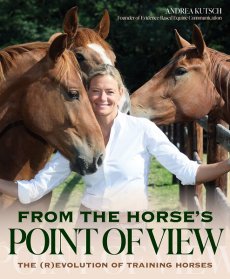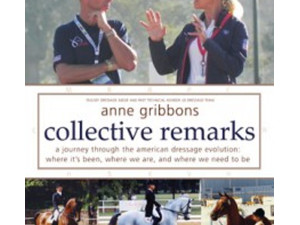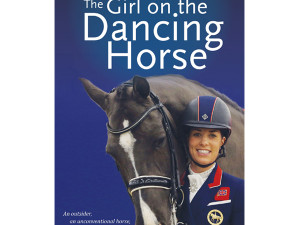From the Horse’s Point of View – Kutsch
$49.95
From the Horse’s Point of View – Kutsch
Beyond Natural Horsemanship – Striking in the facts it reveals, this book leads equestrians into a brave new horse world, where we train horses their way, not ours.
Andrea Kutsch bravely goes on to myth-bust popular assumptions related to typical gestures made by the horse, such as “licking and chewing” and “lowering the head.” She explores how ethograms can be used to map out equine body language and help us attain a clearer sense of the horse’s true perspective.
Paperback- 192 pages.
In stock
Description
From the Horse’s Point of View – Kutsch
Andrea Kutsch explores the worldwide evolution in training, from 1884 to the present day. With this history as a backdrop, Kutsch then explains her EBEC (Evidence-Based Equine Communication) and science-based training system. In a fascinating presentation of evidence and experience, she recounts her years doing research with thousands of horses at The Lewitz Stud in Neustadt-Glewe, Germany, the renowned farm owned by European champion Paul Schockemöhle. It was there, Kutsch says, that her “world was turned upside down” as the natural horsemanship techniques she had long studied and employed did not have consistent results.
Additional areas of discussion include:
- How the horse’s physical and psychological needs must be met in order for him to learn, including what those needs are.
- The difference between inter- and intra-species communication.
- The introduction of a new reward-and-punishment model, never before seen in print, that looks at operant conditioning from the horse’s point of view.
- The need for non-violent communication on the part of the trainer.
- Identification of the training skills a person must have as well as the human’s responsibilities when working with a horse, and what these look like not from our perspective, but the horse’s.
Whether readers choose to try Kutsch’s ideas for science-based training or not, they are certain to never look at riding, training, or caring for horses the same way again.






